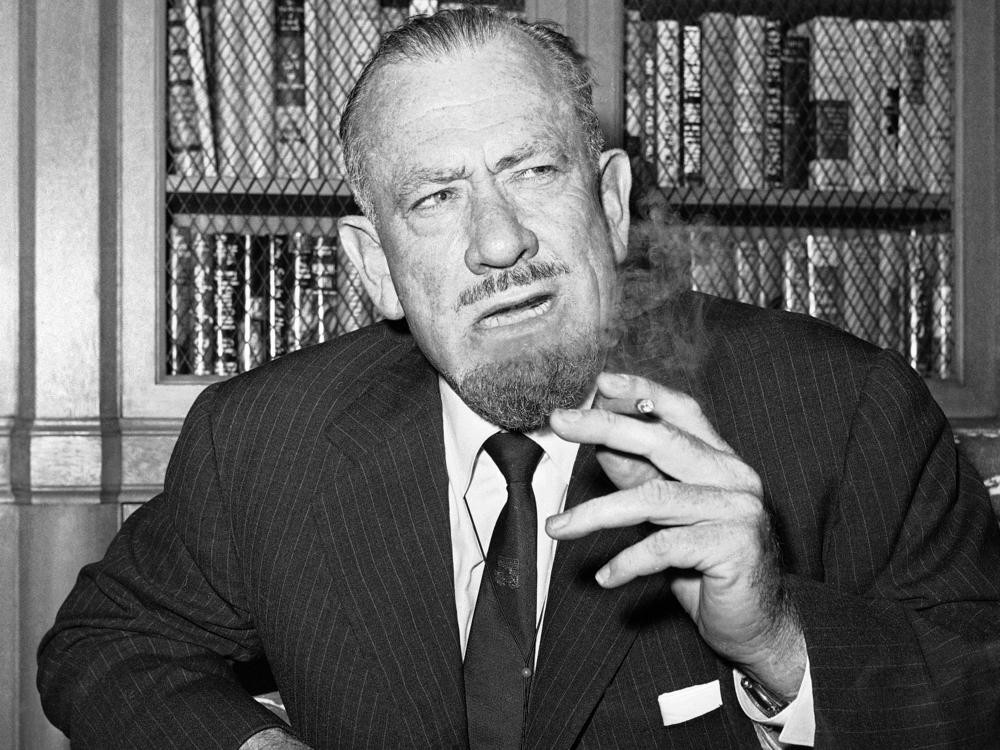Section Branding
Header Content
An unearthed John Steinbeck column probes the strength of U.S. democracy
Primary Content
NEW YORK — Decades ago, as communists and suspected communists were being blacklisted and debates spread over the future of American democracy, John Steinbeck — a resident of Paris at the time — often found himself asked about the headlines from his native country.
The question he kept hearing: "What about McCarthyism?"
The future Nobel Laureate wrote that the practice embodied by U.S. Sen. Joseph McCarthy of Wisconsin was "simply a new name for something that has existed from the moment when popular government emerged."
"It is the attempt to substitute government by men for government by law," Steinbeck continued in a 1954 column for Le Figaro that had rarely been seen until it was reprinted this week in the literary quarterly The Strand Magazine. "We have always had this latent thing. All democracies have it. It cannot be wiped out because, by destroying it, democracy would destroy itself."
Steinbeck was closely associated with his native California, the setting for all or most of "The Grapes of Wrath," "Of Mice and Men" and other fiction. But he lived briefly in Paris in the mid-1950s and wrote a series of short pieces for Le Figaro that were translated into French.
Most of his observations were humorous reflections on his adopted city, but at times he couldn't help commenting on larger matters.
"Anyone even remotely familiar with Steinbeck's works knows that he never shied away from taking on controversial topics," Andrew F. Gulli, managing editor of The Strand, writes in a brief introduction. The Strand has unearthed obscure works by Steinbeck, Ernest Hemingway, F. Scott Fitzgerald and many others. Gulli calls Steinbeck's column in the French publication a timely work for current concerns about democracy.
"The Grapes of Wrath" was a defining work of the Great Depression. Steinbeck held to an idealistic liberalism that was formed in part in the 1930s by Franklin Roosevelt and the New Deal, deepened by the Allied victory over Nazi Germany in World War II and eventually tested by the Vietnam War. He despised both McCarthyism and communism, opposing what he called "any interference with the creative mind" — whether censorship in the U.S. or the persecution of writers in the Soviet Union.
"He stated in the 1960s that the role of an artist was to critique his country," says Susan Shillinglaw, who directs the Center for Steinbeck Studies at San Jose State University.
Steinbeck believed that the United States was a force for good and fortunate in its ability to correct itself. He advocated a version of tough love hard to defend now, likening democracy to a child who "must be hurt constantly" to endure and regarding McCarthyism as a passing threat that would strengthen the country in the long run.
"In resisting, we keep our democracy hard and tough and alive, its machinery intact. An organism untested soon goes flabby and weak," he wrote.
McCarthyism was peaking around the time of Steinbeck's column and McCarthy himself would be censured by his Senate peers within months and dead by 1957. Political historian Julian Zelizer says that Steinbeck was not alone in recognizing the dangers of anti-communist hysteria, while maintaining an "unyielding optimism" that "the constitutional separation of powers and pluralism would keep these forces on the margins."
Lucan Way, whose books include "Pluralism by Default: Weak Autocrats and the Rise of Competitive Politics," tells The Associated Press that "in principle the clear and unambiguous defeat of anti-democratic actors" such as McCarthy might have a positive effect.
But he does not think Steinbeck's column can be applied to contemporary politics.
"What is going on now is not an example of this phenomenon (the fall of McCarthyism)," Way says. "Trumpism has not been clearly defeated but has instead helped to normalize anti-democratic behavior that was previously considered out of bounds."
Copyright 2022 NPR. To see more, visit https://www.npr.org.

